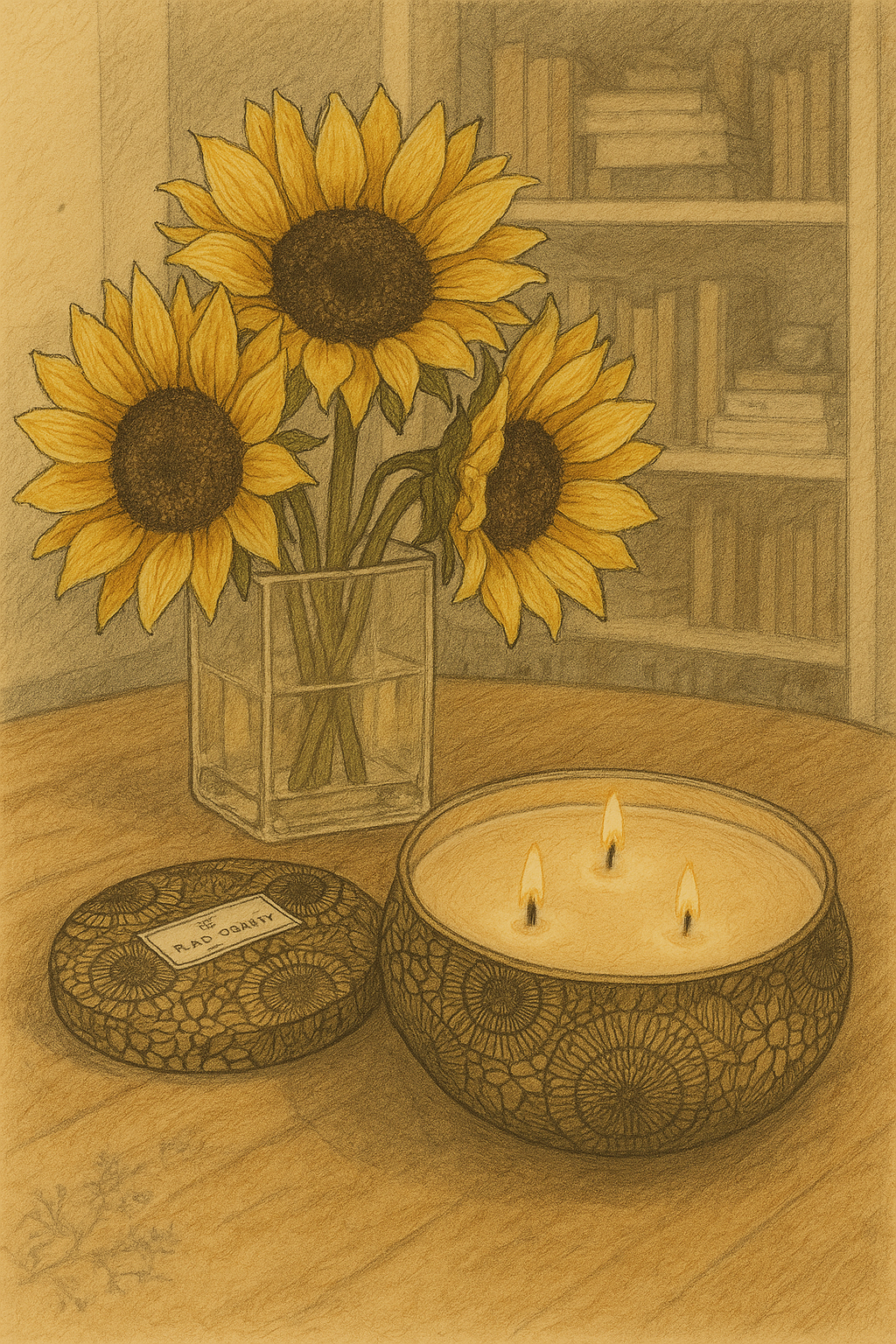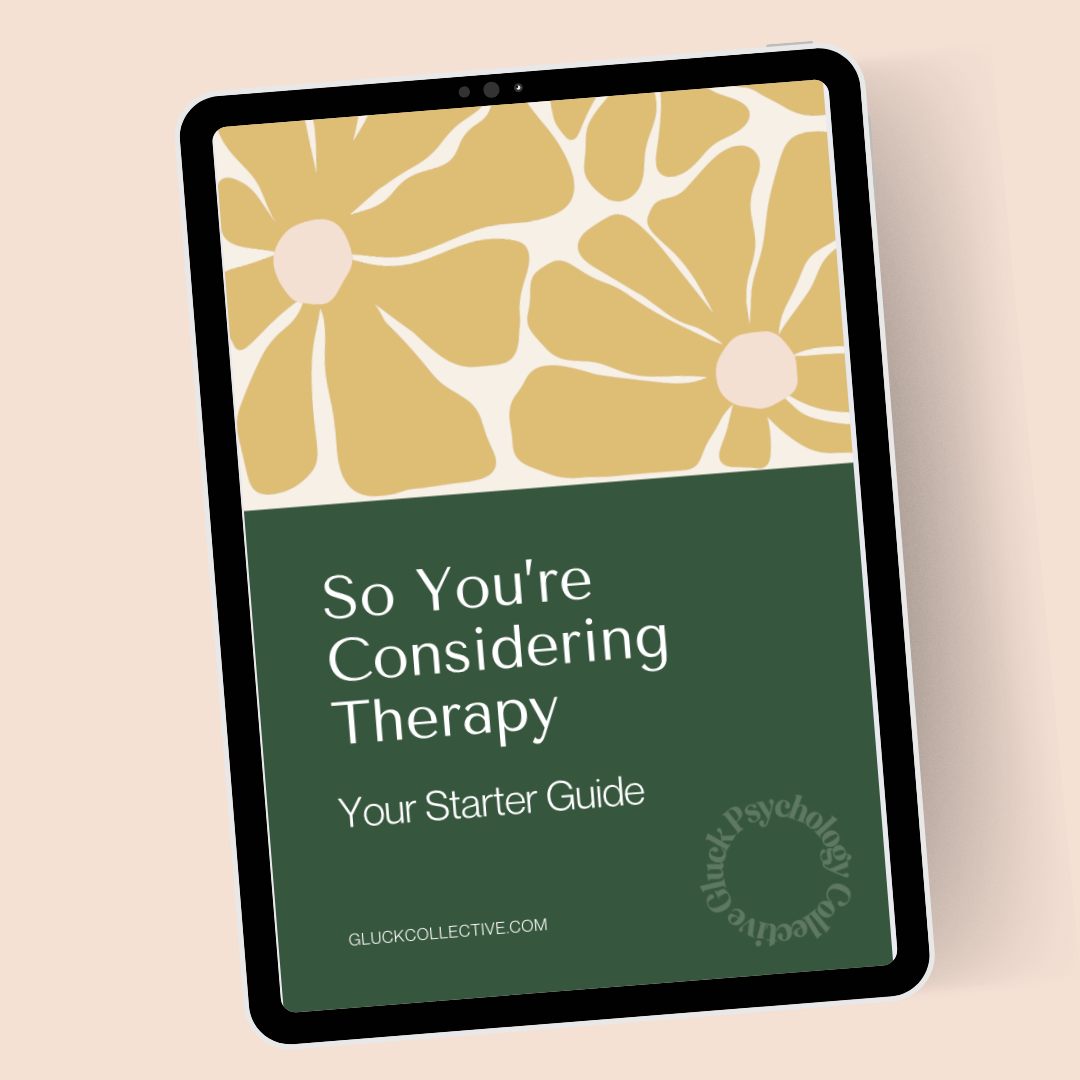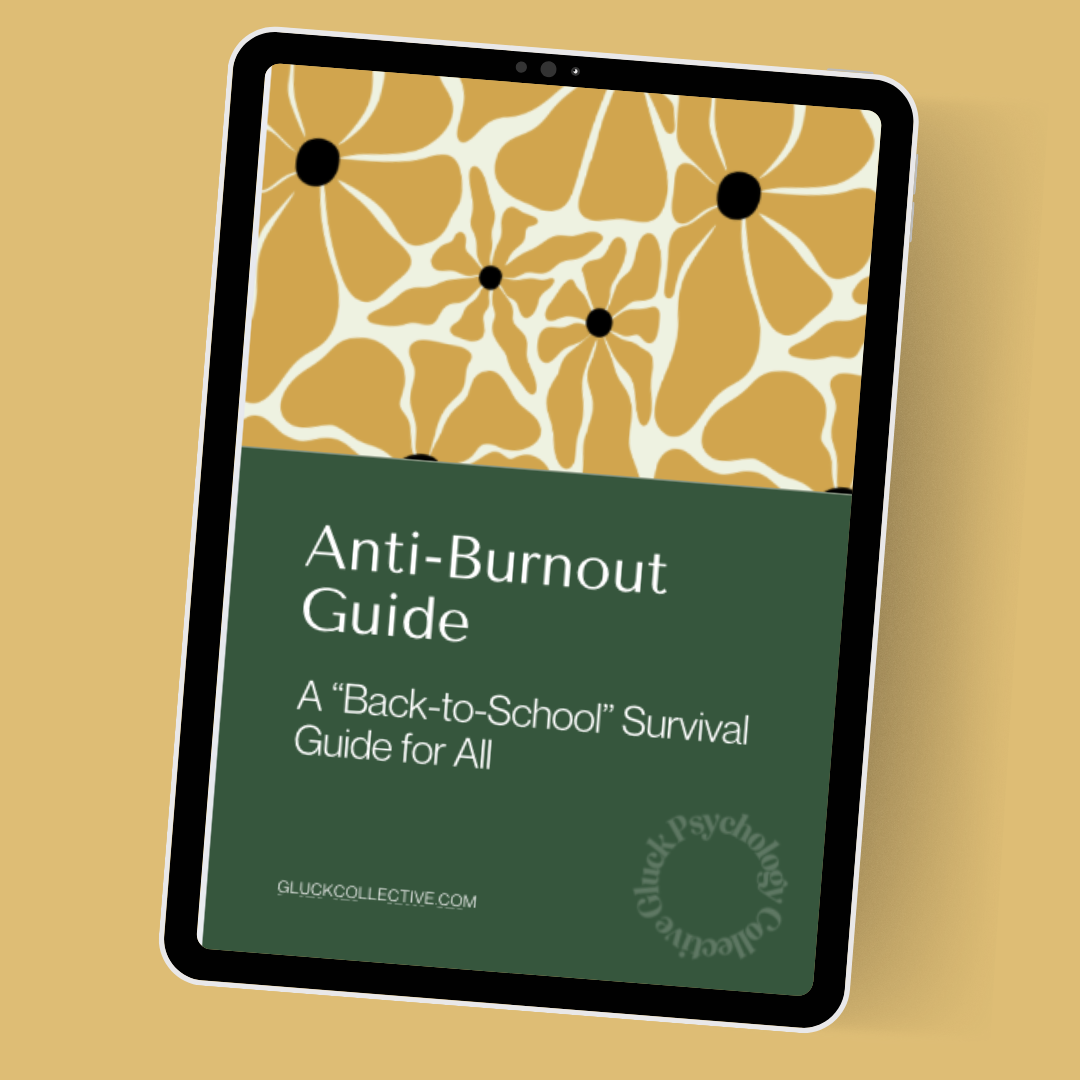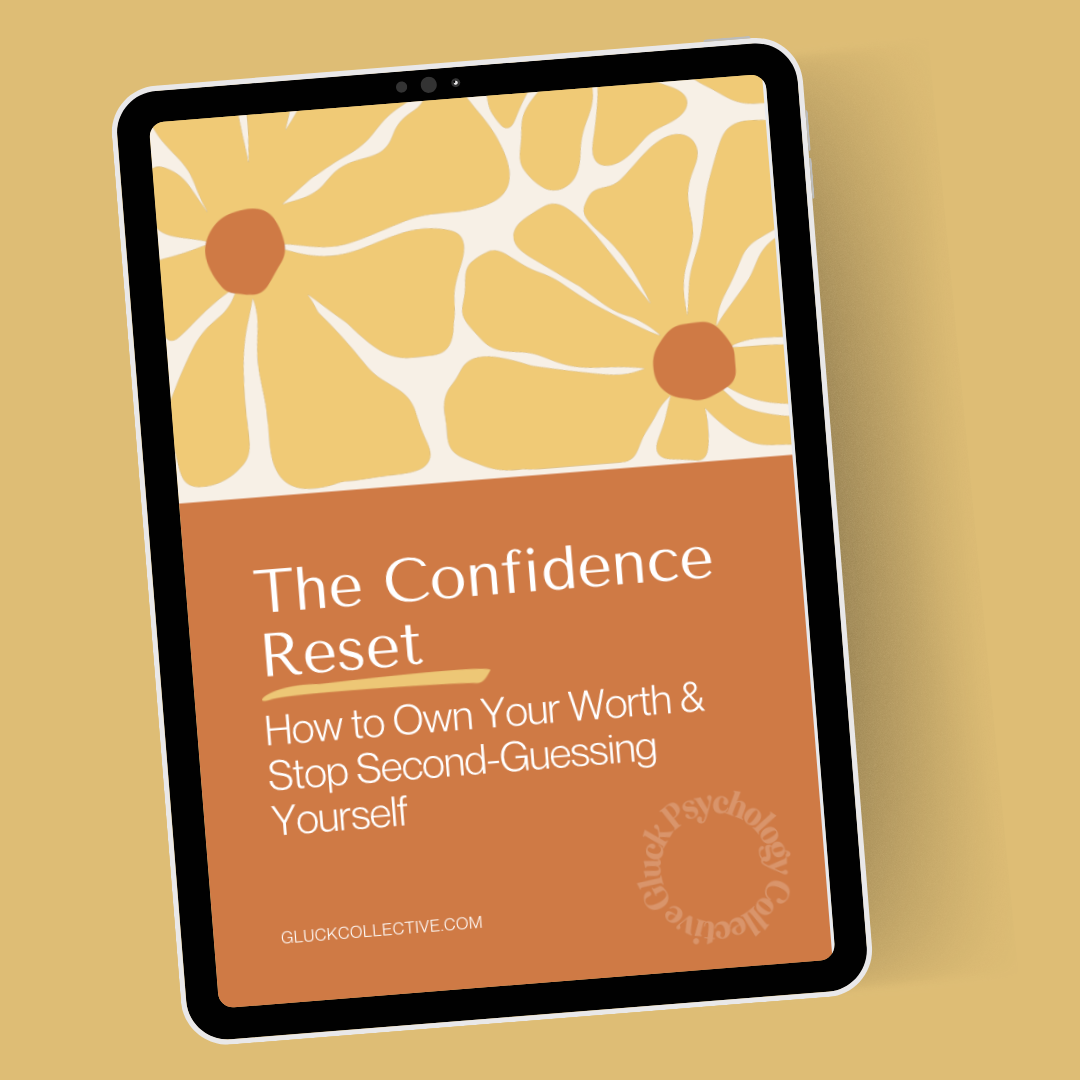WELLNESS HUB
Welcome to your curated space for self-work—whether you’re deep in therapy or just getting curious.
The Wellness Hub is our curated space for all things growth, grounding, and gentle self-work. Whether you’re looking for a quick reset, a deeper reflection, or a little emotional support on a Sunday night spiral, you’ll find tools here designed to meet you where you are.
START HERE
Your Gluck Psychology Collective Toolkit
We offer a mix of free, paid, and client-exclusive resources—because we all need different types of support at different stages of our journeys.. Here’s what you’ll find:
Free Resources
Journaling prompts, mini toolkits, downloadable guides—no strings attached.
Bootcamps + Guides
Deep-dive guides, bootcamps, + other digital tools for when you’re ready to go a little deeper.
Low-Fee & Emergency Support
We’ve got your back with links to sliding scale and crisis resources if therapy isn’t in reach right now.
MINI TOOLS & FREEBIES
Quick wins—mental wellness tools you can start using today to feel more grounded, confident, and supported.
Here’s a sample of some of our favorites.
BOOTCAMPS + THERAPY GUIDES
Your space for guided growth, deeper insight, and the occasional emotional glow-up.
Sometimes therapy brings the aha-moment, but you’re left wondering now what?
Our Bootcamps + Guides are here to bridge that gap—with thoughtfully designed paid resources to help you integrate, reflect, get unstuck, and move forward with clarity.
Pricing is gentle—think of it as a matcha-a-day investment in your mental health.
Therapy Archetype Quiz
Find your vibe + get a custom mini toolkit.
NEED URGENT SUPPORT?
We know that therapy isn’t always an option in the moment. If you need immediate support, you’re not alone.
If you’re in crisis, feeling overwhelmed, or simply need a more accessible option, this page offers a roundup of trusted resources to help you feel less alone, more held, and guided to the next right step.
-
988 Suicide & Crisis Lifeline – Dial 988 (24/7)
Free, confidential support for anyone in emotional distress or suicidal crisis.
NYC Well – Call 888-NYC-WELL (888-692-9355), text WELL to 65173, or chat online (nycwell.cityofnewyork.us)
24/7 support for mental health, substance use, and crisis situations, with referrals to services.
Crisis Text Line – Text HOME to 741741
Free, confidential text-based support from trained crisis counselors.
Samaritans NYC – Call 212-673-3000
24/7 emotional support hotline for those feeling overwhelmed, depressed, or suicidal.
-
The Trevor Project (LGBTQ+ Youth) – Call 1-866-488-7386, text START to 678678, or chat at thetrevorproject.org
24/7 crisis support for LGBTQ+ youth.
Trans Lifeline – Call 877-565-8860
Peer support by and for the trans community, offering emotional and crisis support.
SAGE LGBT Elder Hotline – Call 877-360-5428
Support for older LGBTQ+ adults, including those experiencing loneliness or mental health struggles.
-
National Domestic Violence Hotline – Call 800-799-7233 or text START to 88788
24/7 confidential support and safety planning for those experiencing abuse.
Safe Horizon Domestic Violence Hotline (NYC-Specific) – Call 800-621-4673
Crisis intervention and assistance for domestic violence survivors in NYC.
Sanctuary for Families – Call 212-349-6009
Support for survivors of domestic violence, sex trafficking, and other forms of gender-based violence.
-
NYC Well (Substance Use Support Line) – Call 888-NYC-WELL (888-692-9355)
24/7 help for substance use concerns and referrals to treatment programs.
SAMHSA National Helpline – Call 1-800-662-HELP (4357)
Free, confidential support for substance use and mental health treatment referrals.
Alcoholics Anonymous NYC Intergroup – Call 212-647-1680 or visit nyintergroup.org
Support groups and meetings for those struggling with alcohol addiction.
Narcotics Anonymous NYC – Call 212-929-6262 or visit nycna.org
Meetings and support for those recovering from drug addiction.
-
Covenant House New York – Call 800-999-9999
Emergency shelter and crisis services for homeless and at-risk youth.
Teen Line – Text TEEN to 839863 or call 310-855-4673 (6 PM–9 PM PST)
Peer-to-peer support for teens struggling with mental health challenges.
-
NYC Department for the Aging (DFTA) Hotline – Call 212-244-6469
Assistance for older adults dealing with mental health concerns, isolation, or abuse.
Alzheimer’s Association 24/7 Helpline – Call 800-272-3900
Support for individuals and caregivers dealing with dementia-related concerns.
Clinical Fellows at Gluck Psychology Collective
Connect with one of our Clinical Fellows—If they are unable to support you these additional options are a fantastic way to get the support you deserve.
Open Path Psychotherapy Collective
New York, NY
A nonprofit network providing in-office and online psychotherapy sessions between $40 and $70, with a one-time $65 membership fee.
The Psychological Center at The City College of New York (CCNY)
Bronx, NY
Offers individual, group, family, and couples therapy, as well as psychological assessments, with fees generally ranging from $5 to $40 per session.
Institute for Contemporary Psychotherapy
New York, NY
Provides individual and group sessions at reduced costs based on income, specializing in areas like LGBTQ+ issues, eating disorders, and trauma.
ADDITIONAL LOW-FEE THERAPY OPTIONS
If therapy feels out of reach, there are affordable options in NYC to consider:
Postgraduate Center for Mental Health
New York, NY
Provides weekly individual or group psychotherapy with services offered by psychiatrists and therapists, operating on a sliding scale with an estimated $25 per session.
Queens College Psychological Center
Queens, NY
Offers individual, group, and family/couples therapy, including services for children, provided by PhD students at Queens College.
Lutheran Medical Center: Sunset Terrace Mental Health Center
Brooklyn, NY
Provides weekly individual counseling with a sliding scale fee, starting at a $15 minimum per session.
Center for Modern Psychoanalytic Studies
New York, NY
Committed to offering low-cost psychotherapy with fees determined on a sliding scale based on ability to pay.
When seeking affordable therapy, it's also beneficial to consider therapists who offer sliding scale fees, participate in local support groups, or utilize online therapy platforms that provide financial aid. Exploring community health services and university programs can also lead to more affordable care options.











